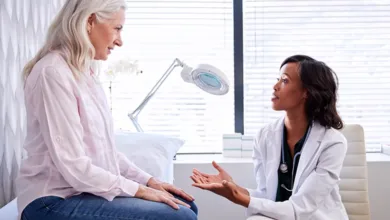Keep Your Brain Young by Staying Fit

Improve Brain Resilience at Any Age!
The brain is our control center. If you focus on achieving your best brain, you will be participating in healthy activities to improve your mind, body, and spirit — not to mention your life!
We’ve come a long way in neurology and neuroscience. We’ve learned the more resilient your brain, the more likely you are to postpone, or even prevent, neurological conditions like dementia. Dementia is a scary umbrella term for disorders affecting memory, thinking, and social interaction that interferes with daily life!
Alzheimer’s disease is the most common type of dementia, followed by vascular dementia. Although it is rapidly on the rise, the good news is that one out of three cases of dementia may actually be preventable.
And the coolest thing? You can impact brain resilience at any age by changing modifiable risk factors and implementing healthy lifestyle habits to impact your brain.
“Even the smallest changes in our daily routine can create incredible ripple effects that expand our vision of what is possible.”
That’s right: The brain is malleable because of a phenomenon called neuroplasticity. This means the brain has the ability to change. Therefore, you can revise its course over your lifetime by simple (not easy) lifestyle modifications.
Believe it or not, the idea of the brain as an organ that is able to be impacted by our daily choices is a relatively new and exciting concept in mainstream knowledge.
Midlife Is the Perfect Time to Make Changes to Keep Your Brain Young and Active
The brain continues to grow until about age 23. And, in most research studies, midlife is defined as ages 45 to 65, which is a prime time to make changes that impact your brain.
Having said that, addressing risk factors and implementing healthy lifestyle habits in late life (defined as age 66 plus) is also beneficial. It’s almost never too early to get into good routines, and never too late!
Improving the Brain’s Active and Resting Connections Boosts Brain Resilience
The better the connections, the thicker the communications between neurons (the cells that make up the brain), and the plumper our brain. For the most part, when it comes to the brain, bigger is better. And research findings suggest that by implementing evidence-based practices, we actually grow these connections and physically build-up our brain.
Furthermore, not only do our active circuits improve, but so do our resting brain networks — much like exercise improves your ability to be more active, while also beneficially lowering your resting heart rate. Your resting brain patterns, called the “default mode network,” are improved with lifestyle modifications and may play an important role in brain resilience.
Since we mentioned it, and for the record, regular exercise — even simply walking — is one of THE best things you can do for your brain.
At IHaC, we reference our top 12 brain hacks. Often, the best treatment plan calls for a prescription of vegetables and volunteering, among other things, to improve wellness and wisdom.
12 Healthy Brain Hacks
Dr. Cris W’s Top Recommendations for Your Best Brain Whether You’re Young or Young at Heart
- Make a schedule and stick to it.
- Eat regular and nutritious meals.
- Add brightly, deeply colored vegetables +/- fruits at every meal.
- Eat fish once to twice per week.
- Drink water, stay hydrated.
- Practice sleep hygiene. Keep to a consistent sleep schedule. Consider short naps.
- Exercise 20-30 minutes daily.
- Meditate 5-10 minutes daily. Be mindful, live with gratitude.
- Play brain games daily. Exercise your brain.
- Volunteer. Participate in social activities once per week.
- Stay current with your healthcare visits.
- Consider additional specialists such as proactive neurological health visits.





